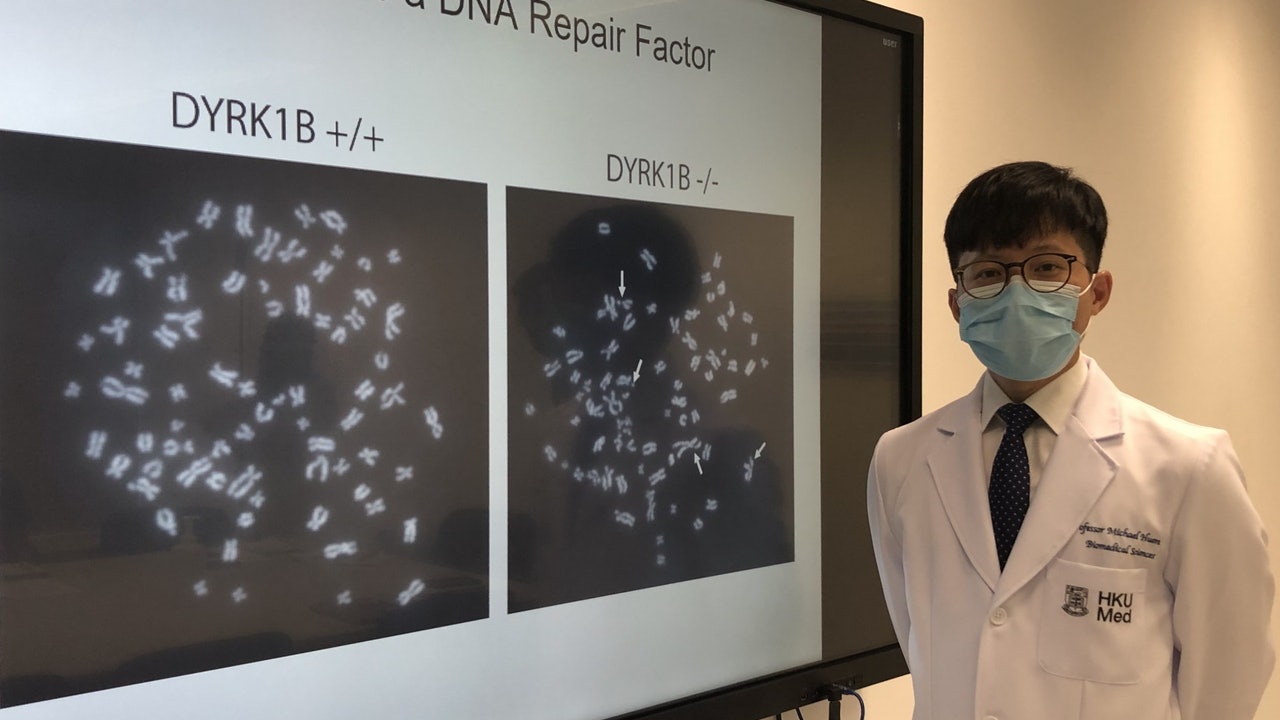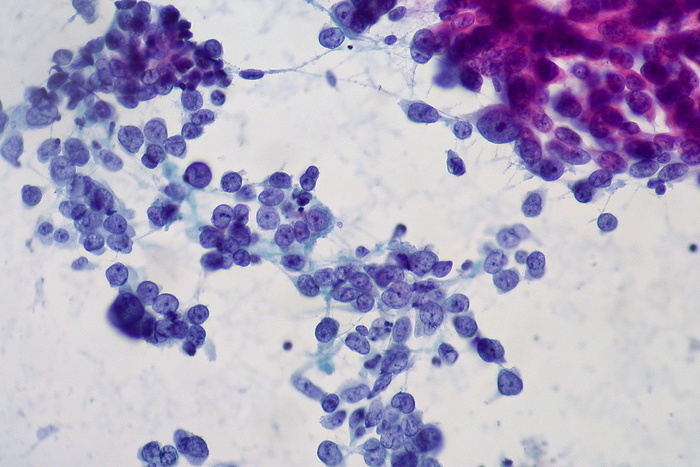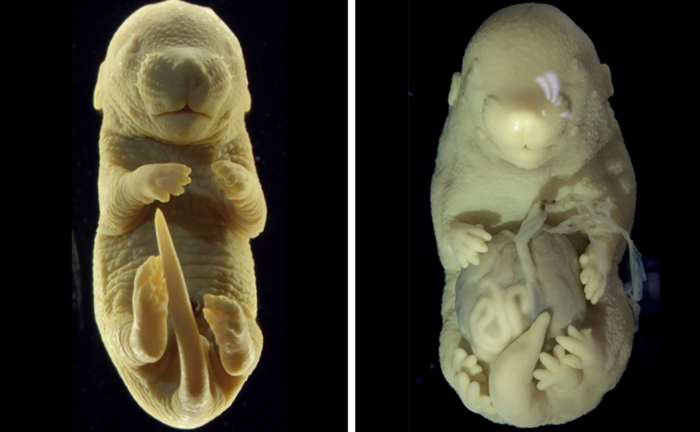Social News
Written by: Chen Qianting
2020-07-07 08:00
Last update date: 2020-07-07 08:00If human cells have genetic damage or may cause genetic mutations, which can lead to cancer or various rare diseases, in order to "fight" with the disease, you need to rely on proteins in the body to repair DNA. The research team of the School of Biomedicine of the University of Hong Kong has spent three years discovering that the new protein DYRK1B is related to the gene repair mechanism. Studies have shown that if this protein is present in the body, the gene damage is significantly less, or it may help delay the onset of cancer and other diseases. time.
The team will further study which diseases DYRK1B mutation is related to and whether it can be used as a drug target, hoping to provide new solutions for cancer treatment. The research results have been published in the international scientific journal Proceedings of the National Academy of Sciences.
HKU has discovered a novel protein as a repair gene damage factor. (Photo by Chen Qianting)
More than three trillion cells in the human body will suffer more than a thousand genetic damages every day. Although the body has the ability to recover on its own, if it is affected by external factors such as ultraviolet rays, smoking, and age, it will not be able to catch up with the speed of genetic repair. At the rate of damage, genes may be mutated, causing cancer or rare diseases. The medical community has discovered about 200 to 300 proteins that have the ability to repair DNA damage, and some have been developed as biomarkers for cancer detection.
The HKU team conducted research on one of the DNA damage "double-stranded gene breaks" and found that the new protein DYRK1B is involved in the mechanism of repairing double-strand breaks. Studies have shown that when there is DYRK1B protein in the body, the chromosomal condition remains normal. Once there is a lack of DYRK1B protein, there is an obvious chromosomal break, reflecting that if the related protein is out of balance, or the gene damage is increased, the disease will be caused.
Xuan Chengen, associate dean of the Faculty of Medicine of the University of Hong Kong and professor of the School of Biomedicine, pointed out that the new findings can help to delay cancerous lesions and can also study new treatment options. (Photo by Chen Qianting)
New discovery or help detect early cancer lesions
The dean of the Faculty of Medicine of the University of Hong Kong and professor of the School of Biomedicine said that except for blood cancer, all other cancers are related to gene repair. This study proves that DYRK1B is an important gene repair factor. If the body's DYRK1B is missing or excessive, it may increase Lesion risk. In addition, previous studies have also shown that if DYRK1B is mutated, it may cause metabolic diseases such as hypertension and diabetes.
Zeng Chengen said that the team will next study the DYRK1B mutation and what kind of diseases it may cause, to find out which type of cancer DYRK1B can be used as a biomarker, and whether it can be used as a drug target to provide new treatment options that can help delay cancer in the future. Onset. He also said that if the ethical problems of genetic testing are solved in the future, the new findings can also be used as a method for evaluating early cancer. The research results have been published in the international scientific journal Proceedings of the National Academy of Sciences.
Xie Chengen revealed that he is now further expanding the research scope to all about 20,000 genes, and will use CRISPR/Cas9 gene editing technology to find more genes that can repair the damage. The research funding of this project has involved millions of dollars. It takes about 3 or 4 years.
Genome project helps find mutant gene expert Liang Xiansun: reduce IVF risk of genetic disease
[Genetically Modified Infant] He Jiankui is expected to appear in Hong Kong seminar ethics expert to deceive
Professor HKU reformed tomato gene vitamin E content increased by nearly 5 times, antioxidant function increased
HKU cracks the mystery of H7N9 avian flu
HKU School of Medicine













